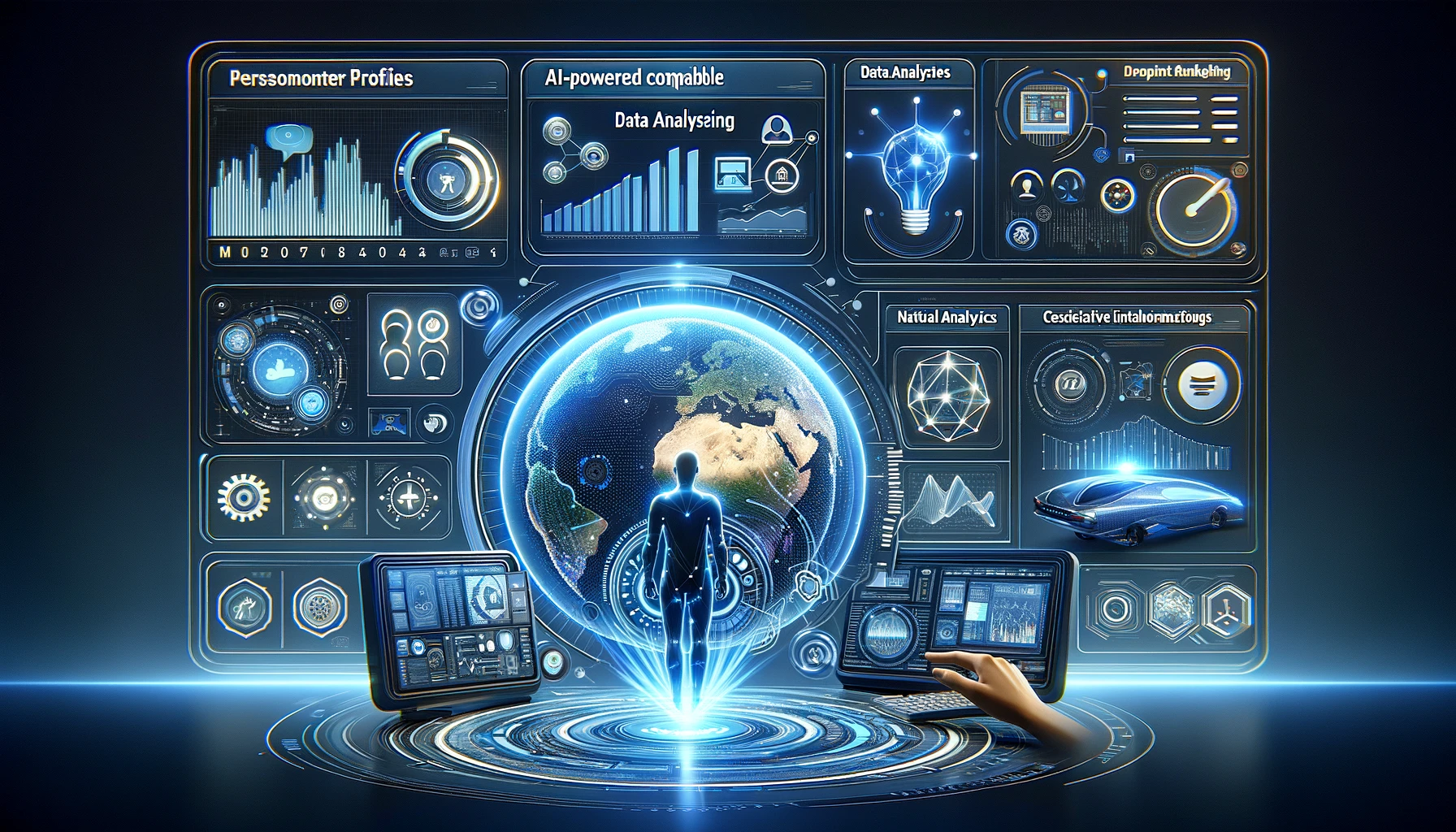Introduction: Understanding Composable CDPs
A configurable Customer Dates Platform (CDP) is a system that collects, organizes, and activates customer data from various sources to provide a unified customer view. It follows the principle of 'composing to adapt'. This includes the ability to build customized solutions by flexibly integrating multiple technology modules or components as needed to meet an organization's marketing needs. Like a Lego set, the system can be dynamically assembled or reassembled to fit seamlessly with the evolving business landscape. And with AI-powered composable CDPs, it gets so much better.
Unlike traditional CDPs, which are large, rigid systems, composable CDPs give organizations the flexibility to make quick adjustments in real time. This allows companies to stay ahead of the competition in today's fast-paced digital age, where customer expectations are constantly changing. Thanks to its modular approach, a buildable CDP can unify customer data from multiple touchpoints, resulting in more efficient marketing efforts and improved customer experiences.
However, generating value from unified customer data requires more than just the ability to collect and manage it. It requires the ability to generate insights from it, understand its context and predict future customer behavior. This is where artificial intelligence (AI) plays a crucial role.
Leveraging AI-powered composable CDPs can supercharge their capabilities and drive innovations that are shaping the future of marketing in unprecedented ways. Let's explore four such innovations.
Using AI for personalized customer experiences
In the age of customer-centric marketing personalization king. Personalization is about understanding customers' preferences and delivering content tailored to their needs and interests. However, with thousands or even millions of customers, personalizing experiences at scale can be a daunting task. This is where AI powered composable CDPs come into the picture.
AI has the ability to process and analyze massive amounts of data in real time, allowing marketers to deliver highly personalized experiences. By pairing AI with a composable CDP, companies gain the ability to micro-segment their customers based on their behavior, preferences and predicted future actions. This results in a more personal customer journey that increases customer engagement, loyalty and ultimately sales.
Moreover, with AI you not only deliver personalized experiences, but also optimize your marketing campaigns. AI can determine the most effective content, channel and timing for each customer segment. This not only improves the customer experience, but also increases the return on investment (ROI) for marketing efforts.
Essentially, AI allows companies to go from mass marketing to one-on-one personalized marketing by allowing the CDP to learn from each customer interaction and adapt in real time.
Machine Learning Algorithms for Data Insights
An integral part of AI is machine learning, and its application in composable CDPs is fundamentally changing marketing strategies. Machine learning algorithms can analyze and learn from vast amounts of customer data to draw insightful conclusions.
In terms of AI-powered composable CDPs, machine learning can be used to identify patterns and relationships within the data. For example, it can reveal which type of content leads to higher engagement with a specific customer group. This information can be used to optimize marketing strategies and create more attractive campaigns.
Additionally, machine learning algorithms can also uncover hidden customer segments based on shared characteristics or behavioral patterns. Such insights can help marketers reach these groups with tailored messages that increase engagement and drive conversions.
Finally, machine learning can enable predictive modeling, which applies models of past customer behavior to predict future trends. This can give companies a competitive advantage by allowing them to proactively respond to expected customer needs.
Natural language processing for contextual understanding
Natural Language Processing (NLP) offers enormous potential in the context of AI-powered composable CDPs. NLP is a technology that enables machines to understand, interpret and generate human language, including speech. This can provide a unique context for customer data, allowing for more personalized interactions.
For example, by analyzing customer reviews, social media mentions, or transcripts of interactions with NLP, companies can understand nuances such as customer sentiment, emerging trends, or common issues customers face. This adds a qualitative dimension to the quantitative data collected by the CDP, increasing customer insight.
Additionally, NLP can help automate customer interactions through chatbots or voice assistants, which can handle questions or issues in real time. This not only improves the customer experience by providing immediate assistance, but also frees up resources to focus on more complex tasks.
Additionally, by understanding the semantics of search queries, NLP can enable more relevant product recommendations, further personalizing the customer journey. So, integrating NLP into composable CDPs could change the way companies interact with and understand their customers.
Predictive analytics for predicting customer behavior
Predictive analytics, powered by AI, involves the use of historical data, statistical algorithms and machine learning techniques to predict future outcomes. In the context of a composable CDP, predictive analytics can predict customer behavior, allowing brands to anticipate customers' future needs and anticipate their actions.
For example, predictive models can anticipate the likelihood that a customer will churn, allowing companies to intervene with a tailor-made offer or communication to retain the customer. Likewise, it can predict a customer's lifetime value, allowing companies to prioritize their most valuable customers.
Additionally, predictive analytics can measure the likely effectiveness of different marketing strategies for different customer cohorts. This insight can guide decision-making and ensure that resources are invested in the most promising strategies.
Ultimately, incorporating predictive analytics into composable CDPs allows companies to move from a reactive to a proactive approach in their marketing strategy, keeping them one step ahead of their customers' needs and wants.
Automation for real-time decision making
Automation is a crucial aspect that increases the effectiveness of AI-powered composable CDPs. With the ability to automate processes, AI can streamline complex tasks, enable real-time decision making, and leave minimal room for error.
One of the most prominent uses of automation in this context is real-time advertising bidding. AI can quickly analyze data and make decisions about which ad space to bid on and how much to bid. This not only optimizes ad spend, but also ensures that ads are shown to the right audience at the right time.
In addition, automation can be applied when entering use in real time of personalized content and recommendations. Based on the customer's digital footprints, AI can immediately analyze their current interests and recommend products, services or content accordingly.
Finally, automated A/B testing allows companies to experiment with different variations of their marketing strategies, analyze the results, and implement the winning variation – all in real time. This significantly shortens the time-to-insight and enables rapid marketing optimizations.
Conclusion: The impact of AI on the evolution of CDPs
The application of AI in composable customer data platforms has changed the way companies approach marketing, offering them unparalleled flexibility and agility. From leveraging machine learning for data insights to deploying NLP for contextual understanding, predictive analytics for predicting customer behavior and automation for real-time decision making, the role of AI in composable CDPs is multi-faceted and immensely powerful.
These AI-driven innovations enable companies to deliver personalized customer experiences at scale, optimize their marketing strategies, and remain agile in an ever-changing market landscape. As AI technology continues to develop, we can expect to see an increasing impact on the evolution of CDPs, making them an indispensable tool for marketers.
In conclusion, as companies strive to become more customer-centric, AI-powered composable CDPs are becoming the cornerstone of effective, modern marketing. They promise a future where companies can adapt to changes in the marketing environment as easily as rearranging Lego blocks.













